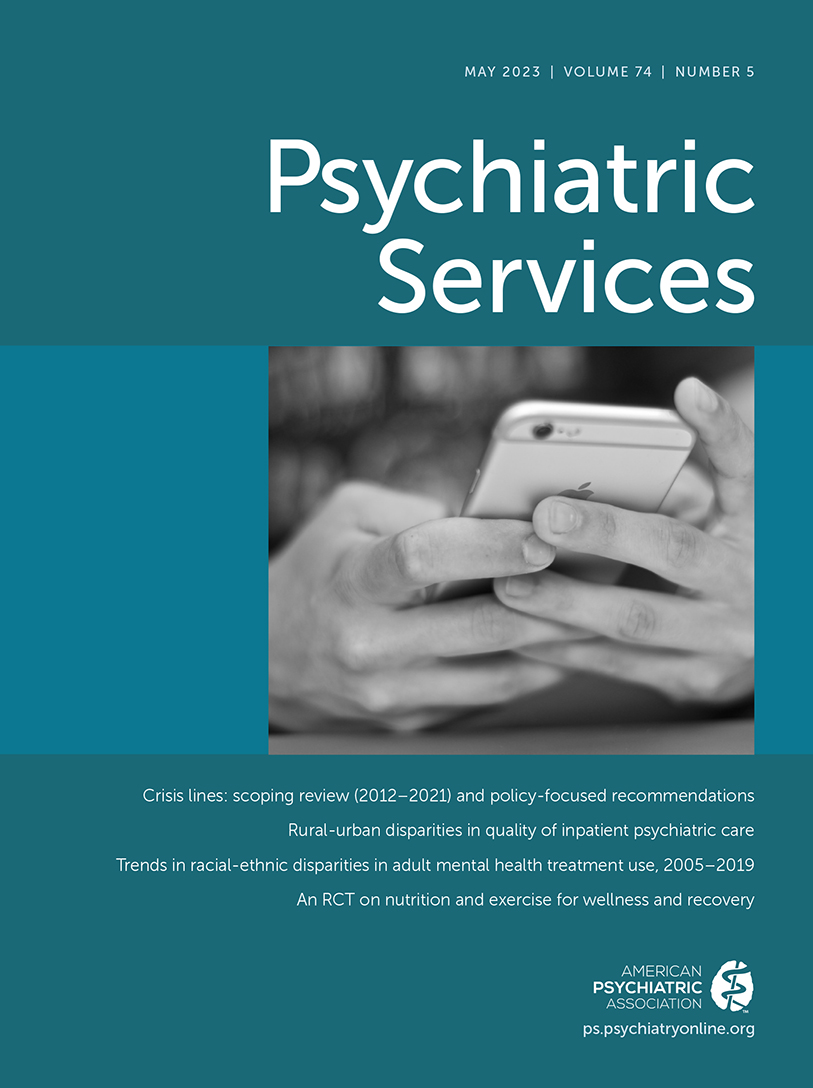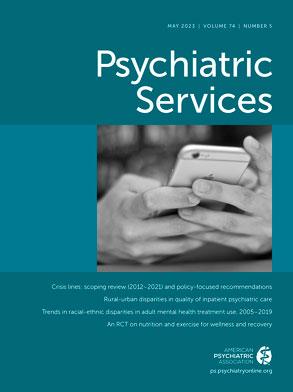Depression has long been a leading cause of disability. Although several depression treatment options are available, including in community and primary care settings, many individuals experiencing depressive symptoms, particularly those from marginalized and racial-ethnic minority groups, do not engage in any form of depression care. Using data from the National Survey on Drug Use and Health (NSDUH), Kaur et al. (
1) show in this issue that disparities in treatments for depression (and other mental health conditions) not only exist but persist over years. Kaur and colleagues analyzed a sample of NSDUH data collected between 2005 and 2019 that included 49,791 responses from adults with a past-year major depressive episode. Over the 14-year period, depression rates increased steadily among all racial-ethnic groups. Yet use of depression treatments remained lower for individuals from racial-ethnic minority groups than for Whites. This finding is even more alarming given that the reported data were collected before the COVID-19 pandemic, which, by itself, has contributed to worsened depression symptoms in the general population, to reduced availability of traditional mental health and primary care services, and to increased reliance on telehealth services, which are not available to all and the effectiveness of which has yet to be determined or fully understood.
A closer look at the “marginalized individuals” category (
1) reveals a concerning finding: further disparities within the health-disparity populations or “hidden disparities.” While a gap has persisted over the years in the prevalence of use of depression treatments between Whites and all marginalized groups, a hidden disparity has emerged for Blacks/African Americans. Compared with Hispanic, Native American/Alaska Native, Asian/Pacific Islander/Native Hawaiian, and multiracial groups (and Whites), Black/African American was the only racial-ethnic group to not show meaningful improvement in the prevalence of depression treatments use during the 14 years surveyed. Interestingly, in 2005, Blacks/African Americans showed the highest use of depression treatments compared with all other racial-ethnic minority groups (although still far lower than Whites). After 14 years, in 2019, whereas all racial-ethnic groups showed an increase in use of depression treatments, usage among Blacks/African Americans remained stable. Of all marginalized groups, by 2019 this group had the lowest prevalence of use of depression treatments, and the magnitude of disparities in depression treatment use between the Black/African American and White groups in 2019 had significantly increased.
We learn from Kaur et al. (
1) that in depression care, the advances, interventions, policies, and efforts invested and implemented over 14 years, including the Affordable Care Act (ACA) expansion of Medicaid access and the increase in mental health treatment coverage, were not enough to close the gap in treatment engagement between Whites and racial-ethnic minority groups. A deeper look reveals that these efforts were less effective for Blacks/African Americans; this group has not benefited from the ACA expansion and additional efforts to the same extent that Whites and other marginalized racial-ethnic minorities have benefited. Among those who identified as Blacks/African Americans, the 2019 NSDUH data, as reported by Kaur et al. (
1), show that most had some college or were college-educated females in their 20s, 30s, and 40s, predominantly insured (private or public), who either work full-time or have other types of employment and yet earn less than $50,000 annually. Although educated, relatively employed, and insured, compared with other racial-ethnic minority groups, this group did not show a meaningful increase in use of depression treatment. In a post–COVID-19 psychiatric era, enlightened by the achievements of the Me Too and Black Lives Matter movements, and inspired by social justice, sociocultural influences, and patient-centered care, psychiatry must find better, out-of-the-box policies, interventions, and practices to promote greater engagement of Black women in mental health treatment for depression.

